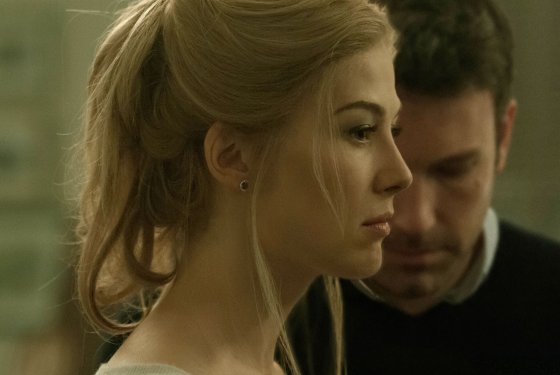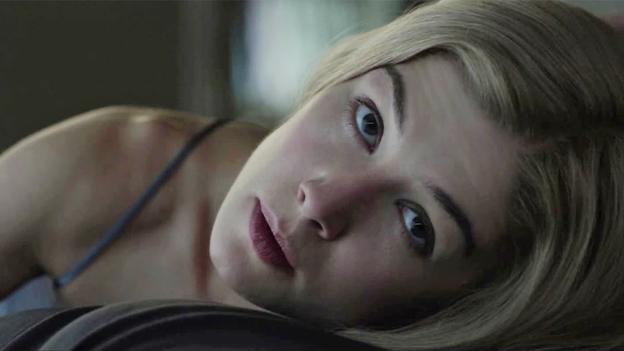‘Gone Girl’ chills audiences

Ben Affleck and Rosamund Pike as Nick and Amy Dunne after a fight in Gone Girl. Still courtesy 20th Century Fox.
October 19, 2014
The tour-de-force novel Gone Girl has become the most interesting wide-release movie of the year. Murder and mystery dominate the film and shape it into a sleek, stark, shocking film with outstanding performances and sharp dialogue.
With its opening scene, Gone Girl, a story of love gone wrong in the worst way, proves itself haunting yet flighty. The back of a woman’s head comes into focus, stroked by a man’s hand, with voiceover describing cracking her skull to learn what’s inside. She turns to face the camera, an unidentifiable something in her eyes. Fade to black. Gone Girl starts off unnerving and becomes terrifying through its twists and turns.
Nick and Amy Dunne have been married for five years when Gone Girl begins. Nick (Ben Affleck), the distant husband, owns a bar with his twin sister, Margo (Carrie Coon), in a small Missouri town. His mother recently died and his father is senile, worsening the bad relationship between the two. Amy (the superb Rosamund Pike), the doting housewife, moved to Missouri with Nick after they both lost their cushy New York writing jobs to the recession. The trouble begins when Nick comes home to a mess in the living room and no Amy. Detectives Boney (Kim Dickens in an outstanding performance) and Gilpin (Patrick Fugit) take the case, and soon the entire country believes Nick killed Amy, despite what he says. Is Nick lying? There’s no way to know for sure.
Scenes between Nick’s worsening luck with the missing person case show their early relationship, with words almost obscured by music. We don’t need to care what they said then; it might not even have happened anyway. None of the many narrators of the early days are completely reliable. Amy and Nick seem perfect for each other, but that’s because they both are acting perfect. Each hides sinister personality traits, one more so than the other. Their marriage ultimately unravels due to the personalities they adopted for each other. The movie warns in bold letters not to fall in love with the idea of someone.
Strong themes in the film are developed perfectly with director David Fincher’s (The Social Network, Se7en, Fight Club) signature immaculate, perfectionist style. Fincher gives Gone Girl a sleek, purposeful menace. Writer Gillian Flynn, who also wrote the book, brings justice to both the major plot swings and subtle inside jokes and social observations. Fincher’s stylized directing coupled with Flynn’s writing style makes the product highly effective and genuinely scary. The soundtrack, composed by Trent Reznor and Atticus Ross, sounds like it was recorded underwater and sputters and decays every time Amy comes into frame. The cinematography is planned perfectly, each scene desaturated and powerful.
In one particularly unnerving tableau, one character, slick with blood, sits on a bed and watches another character suffocate and fade away slowly, waiting for the person to die. Fincher directs in such a way as to give a gruesome murder elegance.
I am being so vague about the plot because Gone Girl requires anyone who talks about it to be vague. Revealing even one twist ruins a very effective story. Only the first 40 minutes are able to be speculated upon here.
Pike’s Amy is a perfect representation of the character in the book, stealing every scene she is in, always with a calculating look in her eyes and a different personality splayed across her face. Dickens also delivers a standout performance as Rhonda Boney, the lone fair detective on Nick’s case. Tyler Perry as lawyer Tanner Bolt and Missi Pyle as speculating TV host Ellen Abbott (who we can all agree is the perfect stand-in for Nancy Grace) both bring breathtaking performances as comic relief. Even the usually aloof Affleck perfectly brings Nick to life, playing to his strengths in this role.
The movie is twisty and terrifying and powerful, both distant and immediate, a truly modern mystery thriller that is very easy to become obsessed with. Gone Girl is an exceptional film.





